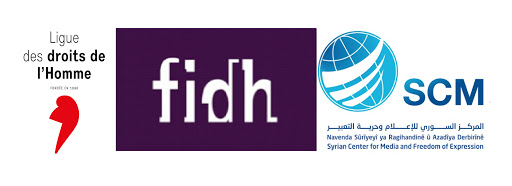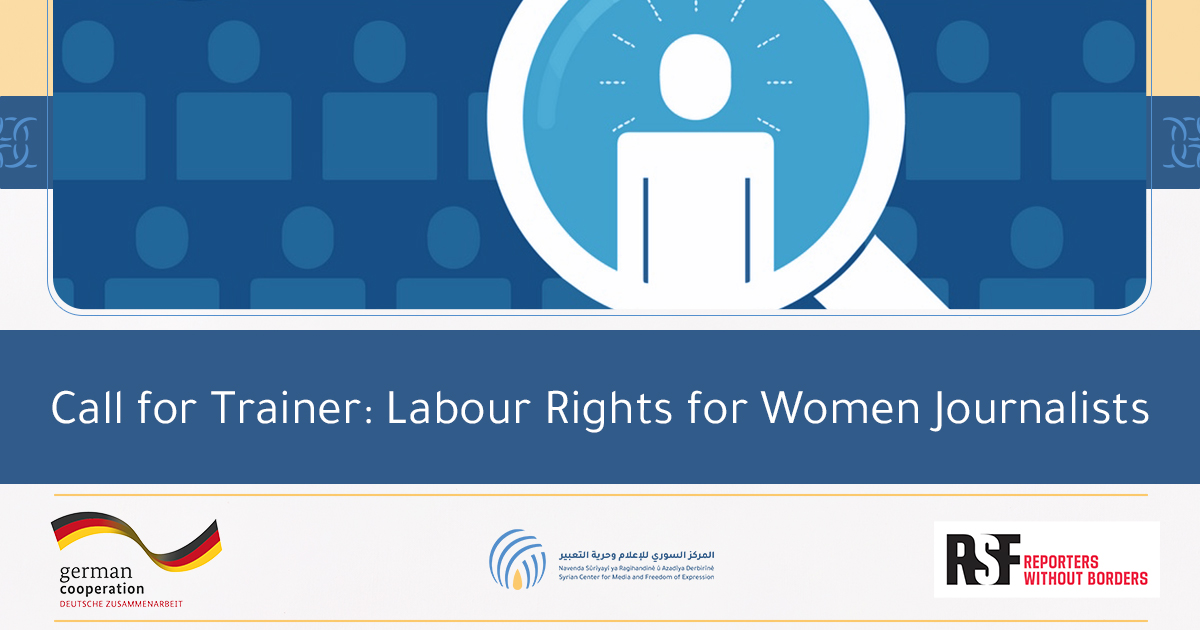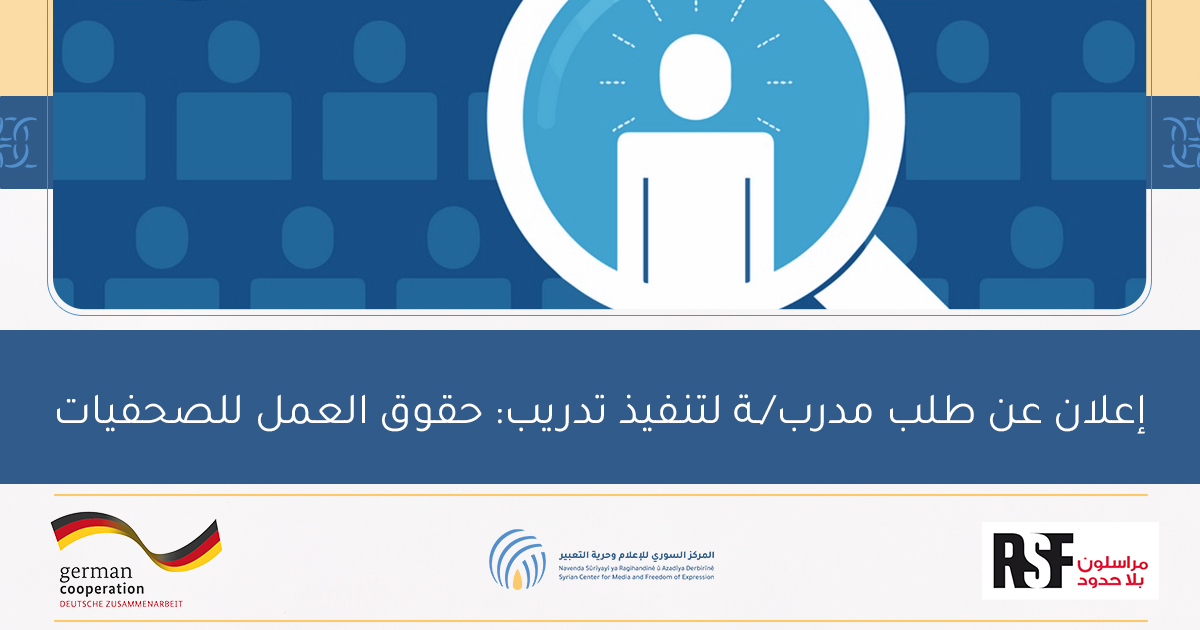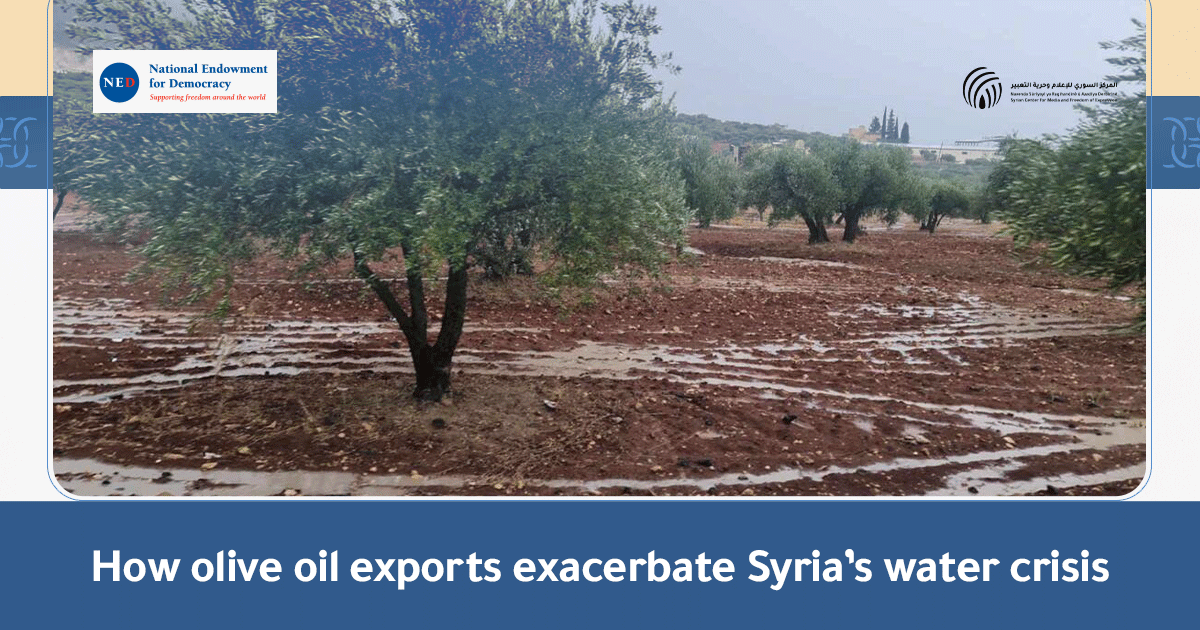What are the facts behind the case?
At midnight on 3 November 2013, 20-year old Patrick Abdelkader Dabbagh, an arts and humanities student in his second year at the University of Damascus, was arrested at his home in the Mezzeh neighborhood of Damascus.
A group of two officers, two soldiers and a computer scientist, who claimed to belong to Syrian Air Force Intelligence, took Patrick Abdelkader for interrogation, without indicating any grounds for his arrest.
At the same time the next day, the same individuals returned to the Dabbagh family home, this time accompanied by nearly a dozen armed soldiers. They accused Patrick Abdelkader’s father, Mazen Dabbagh, of failing to raise his son successfully and proceeded to arrest him, claiming that this would teach him how to properly bring up his son. At the time, Mazen worked as a senior education adviser at the French School of Damascus.
Witness testimony confirms that Mazen and Patrick Abdelkader were both taken to a detention centre at Mezzeh Military Airport, run by Syrian Air Force Intelligence and notorious for the use of brutal torture. The UN Independent International Commission of Inquiry on Syria believes that Mezzeh has one of the highest mortality rates among detention centres in Syria.
Both father and son have not been seen since.
Mazen Dabbagh and his son Patrick Abdelkader were never involved in any protest movements against the Assad regime, before or after March 2011. Their fate is one shared by tens of thousands of Syrians, who have been arrested and detained by the Syrian regime and remain forcibly disappeared.
Earlier this year, Syrian registry offices began issuing thousands of death notifications for disappeared persons. In July 2018, the Dabbagh family received formal notification that their family members had died. According to the documents received by the Dabbagh family, Patrick Abdelkader on 21 January 2014, soon after his arrest. His father, Mazen, died almost four years later, on 25 November 2017.
Why was the case filed in France and not in Syria or before the ICC?
Despite the gravity and scale of crimes perpetrated in Syria since the brutal repression of the March 2011 uprising that led to more than seven years of conflict, there are limited avenues for victims and their families to obtain justice and redress. Syria has not ratified the Rome Statute and, despite attempts to obtain a resolution from the UN Security Council to refer the situation to the ICC, Russia and China’s repeated vetoes have prevented the ICC from opening an investigation on Syria.
With the path to the ICC blocked, and no real prospect of independent justice and accountability inside Syria, victims have turned towards other countries – such as Germany, Sweden, France and Spain – to investigate cases based on what is known as « extraterritorial » jurisdiction. Since 2012, Syrian individuals and organisations as well as international human rights organisations have launched cases in these countries to obtain investigations on torture, crimes against humanity and/or war crimes charges.
What criteria apply in France for initiating investigations into crimes perpetrated in Syria?
Since the United Nations Convention against Torture was transposed into French law in 1986, any suspect found on French territory can be prosecuted and tried in France on torture charges.
The same condition has applied since August 2013 for suspects of enforced disappearance, following the integration of the United Nations Convention on the Protection of All Persons from Enforced Disappearance into French law.
Irrespective of their nationality and country of residence, victims of torture and enforced disappearance can file a criminal complaint with the French prosecutor and participate in the proceedings as civil parties. This status gives victims extensive rights throughout the investigation, such as the ability to request that specific acts of investigation be undertaken, or that certain witnesses be called to testify.
On 9 August 2010, a law incorporating the Rome Statute into French law was adopted by the French Parliament. This law gives the French courts jurisdiction over the crimes of genocide, crimes against humanity and war crimes committed in another country, if the following conditions are met:
- the suspect resides in France
- there is incriminating legislation of such acts in the State in which they were committed, or either the State in which the crimes were committed or the State of which the suspect is a national is party to the Rome Statute, and
- prosecutions can only be initiated at the request of the French prosecutor
Alongside these criteria, French courts have jurisdiction over crimes committed against French nationals or dual nationals, as well as on crimes perpetrated by French nationals or dual nationals. Thus, it is on the basis of Mazen and Patrick Abdelkader’s dual Syrian-French nationality that a criminal investigation was initiated in France in November 2016.
On 1 January 2012, a specialised unit for the prosecution of crimes against humanity and war crimes was created in Paris, known as the French “war crimes unit”. This unit is composed of a team of three prosecutors, three independent investigative judges and a team of specialised investigators, working exclusively on international crimes cases. Today, the French war crimes unit is working on close to 100 judicial investigations and preliminary examinations involving international crimes committed outside of France, at least 15 of which relate to crimes committed in Syria.
In September 2015, the French Ministry of Foreign Affairs transferred the Caesar files to the specialised unit in Paris, which led to the opening of a preliminary investigation into the regime’s practice of systematic torture of detainees, amongst other violations.
How was the Dabbagh case initiated and how did it reach the point of international arrest warrants?
On 24 October 2016, FIDH and its member organisation in France, the Ligue des Droits de l’Homme, with Mr. Obeïda Dabbagh (Mazen Dabbagh’s brother) and the active support of the Syrian Center for Media and Freedom of Expression (SCM), referred the case of Mazen and Patrick Abdelkader Dabbagh to the French war crimes unit.
In the complaint filed with the prosecutor, the plaintiffs requested immediate judicial investigation, through the appointment of an investigative judge, into the crimes of enforced disappearance and torture amounting to crimes against humanity that they claim have been committed against Mazen and Patrick Abdelkader Dabbagh by members of the Syrian regime.
On 7 November 2016, the Prosecutor opened a judicial investigation and three investigative judges were appointed to investigate the case.
Between December 2016 and September 2018, Mr. Obeida Dabbagh, represented by FIDH lawyers, testified three times before the investigative judges.
Throughout the procedure, in collaboration with SCM, FIDH and LDH filed legal briefs and specific requests with the investigative judges, and also identified key witnesses who testified on crimes perpetrated by Syrian Air Force Intelligence agents in the Mezzeh detention centre and elsewhere.
On 8 October 2018, the investigative judges in charge of the case issued three international arrest warrants; against Ali Mamlouk and Jamil Hassan for complicity to crimes against humanity, and against Abdel Salah Mahmoud on charges of complicity to crimes against humanity and war crimes.
Who are the 3 high-level Syrian officials targeted by the international arrest warrants and what are they charged with?
Major General Ali Mamlouk, Head of the National Security Bureau
Major General Jamil Hassan, Director of Administration for Air Force Intelligence
Major General Abdel Salam Mahmoud, Director of Investigation at the Air Force Intelligence Branch in Damascus
All three suspects are charged with complicity to crimes against humanity for their role in torture and enforced disappearance and Abdel Salam Mahmoud is also wanted on war crimes charges.
Why is this development important?
These international arrest warrants, which follow the international arrest warrant issued by the German federal prosecutor against Jamil Hassan in June 2018, constitute a key milestone towards breaking the impunity for crimes committed by the Syrian regime.
By targeting senior regime figures, and, for the first time ever, the very top of the regime hierarchy, it is clear that perpetrators – whatever their level of seniority – cannot escape justice.
The French justice system has drawn attention to the responsibility of these three individuals and their role in crimes against humanity and war crimes perpetrated against the Syrian people. Without access to the ICC, transitional justice or a hybrid court, as things stand, this move sends a strong signal that extraterritorial justice has an essential role to play in pursuing those responsible for the gravest crimes perpetrated against civilians in Syria since March 2011.
It also demonstrates that these investigations are possible and can lead to concrete results, thanks to the extensive documentation work undertaken by Syrian activists since 2011 and the immense courage of victims and witnesses who share their testimonies.
What are the implications of the international arrest warrants and what happens next?
All three suspects can no longer enjoy impunity for the crimes they have committed and their place in Syria’s future is also called into question.
The international arrest warrants will prevent the three suspects from traveling abroad freely.
Despite being on an EU Sanctions list, Ali Mamlouk traveled to Italy earlier this year to meet with former Interior Minister Marco Minitti and Head of Intelligence, Alberto Manenti. This would no longer be possible; Italy will now be obliged to arrest and extradite him to France if he returns.
In terms of the criminal case in France, even if the international arrest warrants are not executed, the investigative judges could nevertheless consider closing the investigation and send the case to trial. The suspects would have the right to be represented by a lawyer for the duration of the trial, even if they themselves are not physically present in court.





